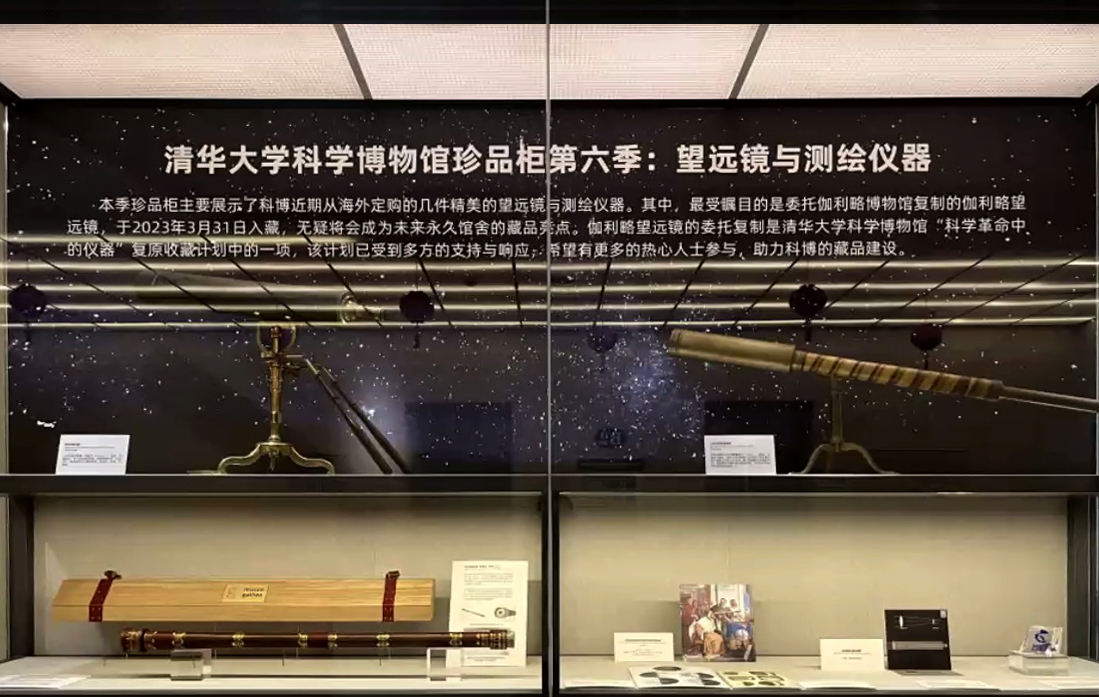 On April 28, 2023, an online launch ceremony was held to mark the collaboration between Museo Galileo and the Department of History of Science at Tsinghua University, along with the Tsinghua University Museum of Science. The cooperation is enshrined in a broad agreement underlining the commitment of both institutions to collaborate in research activities and events related to the history of science and technology.
On April 28, 2023, an online launch ceremony was held to mark the collaboration between Museo Galileo and the Department of History of Science at Tsinghua University, along with the Tsinghua University Museum of Science. The cooperation is enshrined in a broad agreement underlining the commitment of both institutions to collaborate in research activities and events related to the history of science and technology.
The event was attended by representatives from both institutions: for Museo Galileo the Executive Director, Dr. Roberto Ferrari, the Scientific Director, Dr. Filippo Camerota, and the Deputy Scientific Director, Dr. Giovanni di Pasquale, together with Dr. Guosheng Wu, Chair of the Department of History of Science at Tsinghua University and Director of the Tsinghua University Science Museum, Dr. Zheran Wang, Assistant Professor of the Department of History of Science at Tsinghua University and Assistant Director of Tsinghua University Science Museum, and Dr. Alberto Bardi, Assistant Professor of the Department of History of Science at Tsinghua University. Jocelyn Jing Wang, Coordinator of International affairs at Tsinghua University Science Museum, hosted the meeting.
The Tsinghua University Science Museum, currently under development, will be China’s first university museum to showcase comprehensive scientific collections. In addition to highlighting notable scientific and engineering achievements throughout history, the museum will also showcase modern innovations from Tsinghua University. This new addition to the Tsinghua campus will serve as a platform for promoting science communication and inspiring scientific and technological innovation. In recent times, the Tsinghua University Science Museum commissioned the Museo Galileo to make a replica of one of the only two extant Galileo telescopes in the world, to be displayed in their premises. The replica – created under the direction of Dr. Filippo Camerota and Dr. Giorgio Strano, Head of Collections at Museo Galileo – has been made according to rigorous philological criteria and following the new studies conducted on the original instrument.
The collaboration between the Tsinghua University Science Museum and Museo Galileo marks an important milestone in promoting scientific knowledge and understanding across cultures and borders.
-
Useful links


